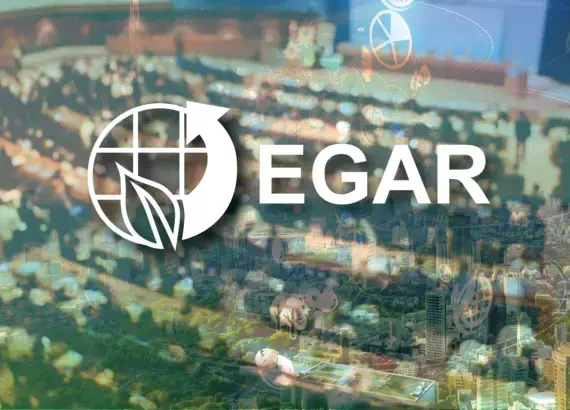
Success Story
Climate creates cross-party culture
Political gridlock, partisan stalemate and ideological tensions that go years back. Isn't that far too often the situation in the political landscapes in today's world? Lack of unity and locked positions tend to overshadow the real need for change. But maybe we are witnessing something new happening. Climate issues can actually pave the way for a cross-party culture.
The consequences of the climate crisis are already being felt. Little time remains to prevent irreversible damage to our planet. Tackling this existential threat on a global and national level is an impossible task for one political party alone. It requires cross-party cooperation to successfully combat climate change’s most alarming effects. Thankfully, this global crisis fosters unique opportunities for global cross-party collaboration. We should be hopeful.
There is a global urgency to tackle the climate crisis. It needs to be done before we reach the ultimate tipping point when the planet starts to heat itself even without human-sourced emissions. Multilateral and cross-party cooperation to tackle this increasing threat is no longer optional, but imperative for all life on Earth. Political parties are interdependent on each other to solve this.
Everyone benefits from a sustainable future. Political parties across the spectrum have not only started realizing this, but some have even joined forces to tackle the climate and environmental crisis. In Western Europe, previously unthinkable “greencon” government coalitions - consisting of Greens and Conservatives - have gradually started to emerge. Ireland and Austria are two examples, with Germany possibly being next on the list after the 2021 federal election.
In the UK, there are serious speculations for a Progressive Alliance with the Labor Party joining forces with the Greens and the Liberal Democrats to form a government actively promoting policies to tackle the climate emergency. In the British parliament, the All-Party Parliamentary Climate Change Group enables effective cross-party discussion and action on climate policy. Also in New Zealand, MPs collaborate across party lines to deliver on the commitments of the Paris Agreement. There is no doubt that tackling the crisis through cross-party initiatives benefits everyone across the political spectrum.
Western political parties in democracies taking the lead in immediate climate action is fair and just considering that wealthy nations are the biggest polluters. However, involving political parties in the parts of the world which are most vulnerable to the effects of climate change is also essential. That is why multilateral initiatives from actors such as the Climate Parliament are so valuable. They provide cross-party support and legislative tools to MPs worldwide, especially in Asia and Africa. The crisis truly is of global proportion. This demands a global response from political parties everywhere.
Political parties - as the backbone of democracy - have an obligation to push for sustainable democratic development. Considering that climate is a relatively insensitive ideological political issue compared to e.g. economic policy - is to the parties’ advantage. By utilizing this, climate change can act as a bridge for cross-party partnership, strengthening the multi-party system. In addition to reinforcing democracy, the measures needed to tackle the climate and environmental crisis can be implemented in unison across the parliamentary divide.
As Greta Thunberg has already stated, “People are suffering and dying due to the climate and ecological emergency and we can't wait any longer.” It is time for political parties to get their acts together and cooperate.
NDI is a non-profit, non-partisan, non-governmental organization that works in partnership around the world to strengthen and safeguard democratic institutions, processes, norms and values to secure a better quality of life for all. NDI envisions a world where democracy and freedom prevail, with dignity for all.
